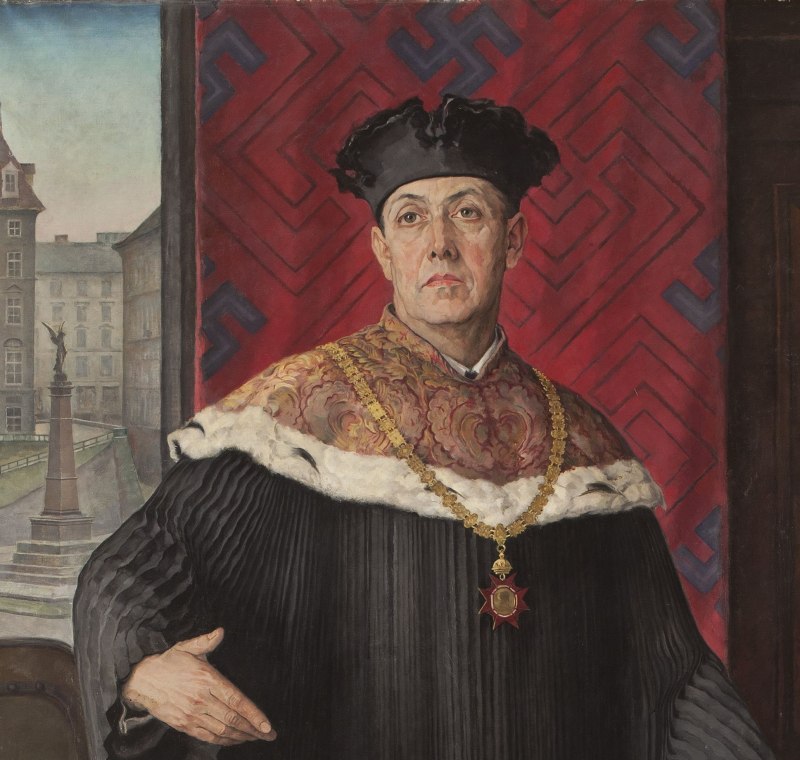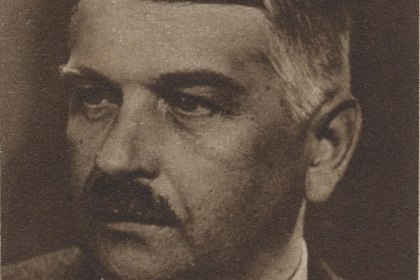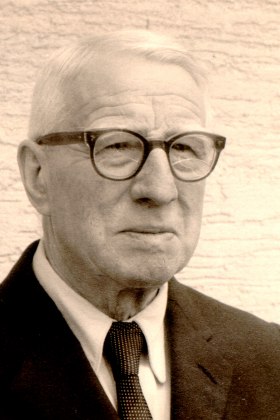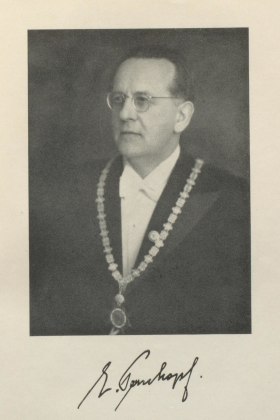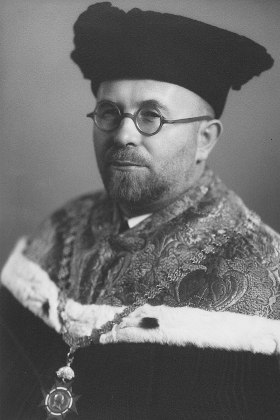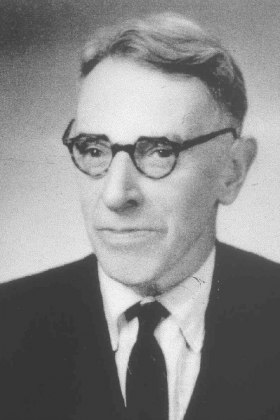External restructuring by the “Führer-principle” and National Socialist officials
In the first days after the “Anschluss” in 1938 National Socialists took over the most important scientific positions. In preemptive obedience, numerous professors of the University of Vienna collaborated in the restructuring and politicization of the university’s administration according to the “Führer-principle” and filled leading positions.
On March 15, Fritz Knoll, professor of botany and NSDAP-member since 1937, was tasked by the regional NSDAP-leadership with “looking after the regional leadership’s interests at the Viennese university”. Shortly thereafter he took over Rector Ernst Späth's position and was made “acting rector”. He also had a clear political-ideological mandate.
Two further important university positions were filled with professors loyal to the party:Viktor Christian (oriental studies) became dean of the Philosophical Faculty and Eduard Pernkopf (anatomy), who later also succeeded Knoll as rector in 1943, became dean of the Medical Faculty. In addition, for example Oswald Menghin (pre- and early history) demonstrated his affinity to the NSDAP through his function as minister of education in the “Anschluss”-government under Arthur Seyß-Inquart in 1938.
When the 1935 “guidelines for the standardization of the university administration” were implemented in May 1938, the University of Vienna was put under the control of the Reichsministerium für Wissenschaft, Erziehung und Volksbildung (Reich Ministry for Science, Education and National Culture, REM) founded in 1934 and led by Minister Bernhard Rust. The university was subsequently reorganized hierarchically according to the “Führer-principle”. National Socialist teachers and students were organized in the National Socialist German Dozentenbund (Teachers’ League) and Studentenbund (Students’ League), which were subordinates of the REM. All other associations were dissolved or integrated. To politically control the university, a local department of the Dozentenbund was also founded under Dozentenführer Arthur Marchet (petrology, from 1943 Dean of the Philosophical Faculty).
These intrusions into the university administration by the Berlin Reich Ministry of Education fostered the disillusionment of Viennese professors after the Second World War began. The university’s growing assertiveness did not arise for political reasons, but began with the appointment of a curator. While the rector now only was responsible for the academic field and the Dozentenführer was in charge of political issues, the curator – as a new authority between university and ministry – was supposed to take over all university tasks regarding the state, meaning the communication with the ministry. The professors felt that the establishment of this curator role was not reconcilable with Austrian traditions, but nevertheless management expert Dr. Walter von Boeckmann took up this position on February 1, 1940. Because he tried to claim more and more administrative power over time, the Viennese rectors repeatedly tried to delimit his competences and intervene in his authority.
After the “Anschluss”, numerous members of the university attempted to prove their political “reliability” by pointing out their accomplishments for the NSDAP as former “illegal” party members or their aspirations to join the party. Several also focused their research on subjects in line with the National Socialist political ideology or participated in the theft and “Aryanization” of collections and book stocks that belonged to Jews.
Articles
- Organizational structures in historical transition
- Actors
- Students and teachers as political actors in the 19th and 20th centuries
- Student corporations in the 19th and 20th century
- Terror against the Anatomical Institute of Julius Tandler
- Dismissal of political enemies at the University of Vienna during Austrofascism
- Expulsion of teachers and students in 1938
- External restructuring by the “Führer-principle” and National Socialist officials
- The de-Nazification of the professorate at the University of Vienna
-

Gauleiter Bürckel verlässt nach einer Propagandarede für die „Volksabstimmung“ zum „Anschluss“ die Universität, 17. März 1938
Unmittelbar nach dem "Anschluss" wurde der Lehrbetrieb der Universität Wien eingestellt bis zur feierlichen Wiedereröffnung am 25. April. Während...
Last edited: 03/04/24

